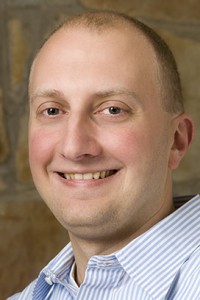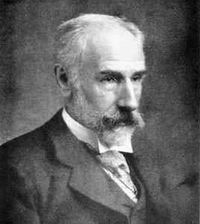 I would be the first to admit it – I am not a patient person. For example, I’ve owned 5 different cell phones in the last 3 years. Why? Because I get impatient whenever a new feature comes out that my phone doesn’t have! If you want to torture me, ask me to wait in the grocery check-out line. On my birthday, we open gifts at 7 AM. Waiting a few minutes at the coffee shop for a friend running late tests my patience. Yet, in my professional career, it has been my lack of patience that actually changed the entire course I have taken.
I would be the first to admit it – I am not a patient person. For example, I’ve owned 5 different cell phones in the last 3 years. Why? Because I get impatient whenever a new feature comes out that my phone doesn’t have! If you want to torture me, ask me to wait in the grocery check-out line. On my birthday, we open gifts at 7 AM. Waiting a few minutes at the coffee shop for a friend running late tests my patience. Yet, in my professional career, it has been my lack of patience that actually changed the entire course I have taken.
I am an economist who specializes in crunching giant datasets to figure out what patterns exist in the data and how to rigorously test hypotheses. After a very short stint as an academic after graduate school (again, impatient!), I began a career at one of the top economic litigation consulting firms in 2001. My job the past decade has been to provide expert witness testimony in antitrust and labor and employment litigation matters.
About three years ago, during a performance evaluation, one of my bosses tried to pay me a compliment when he told me I had been a “superstar” at the firm, but sometimes being so successful so quickly meant people didn’t exactly know what to do with me. Then he gave me some advice which I will never forget– I just needed to be patient because I was a big part of the future of the firm.
You can probably guess that I didn’t take that advice so well. Something about the discussion crystallized for me that to be truly satisfied in my professional career, I was going to have to shake things up and venture out on my own. So, after nine years, I decided to leave the security of a large firm to venture out on my own (in the worst recession of the last few years).
Thus, in September 2009, Edgeworth Economics was born.
I quickly realized that I had a certain vision for the firm that would have my name on it. But, as you probably noticed, my name is Johnson, not Edgeworth! That was actually the point. Francis Edgeworth was a 19th century economist who developed, amongst other things, a model of trade called pareto optimality. The theory of Edgeworth’s model is that gains from trade can be made to the point at which everyone has been made better off, and no one is made worse off. We have used this concept to guide decisions at our firm from the beginning: a belief in a culture that serving clients can be done and a work environment can be created in which we all can flourish by putting the needs of the firm above those of ourselves.
Our firm started with six of us in what quickly became a very cramped temporary office space in Washington, DC. At times it has felt like Art Linkletter might be hiding in the office waiting to jump out and say “this is your life…”. Our recruiting efforts have brought a group together from all different parts of my life: my two co-founders were both colleagues from my former firm who I have known for almost a decade. Our HR Director was my best undergraduate student from Illinois. Our COO is my former research assistant who was finishing an MBA as we started the firm. One of our senior PhD economists was my daughter’s first babysitter. And even my wife jumped in to the mix—handling all sorts of crazy tasks for us whenever we needed her help.
About 19 months later, and having run out of people I know, we are about to hire our 22nd employee and once again find ourselves expanding our office space to fit all of our staff. One of the best parts of this experience for me has come from the ability to create a unique culture of professionalism, shared sacrifice, and working together for the benefit of the entire firm. Our client base is varied—but the hallmark of our firm has been great attention to our clients and providing rigorous, objective analysis. In many respects, we are academic in our approach. My firm specializes in teaching our clients, attorneys, judges, and juries. And in some respect, that is how my career has gone full circle from my short stint at a professor.
Every day, I try to teach my employees – leading by example, building our culture, pushing our potential, and sharing this experience.
Every day, I attempt to teach my clients – what does all this economics analysis mean, how it is relevant to their case, and what the implications are.
And not a day goes by that I don’t learn something from my colleagues and my clients – either about myself, about running a business, or about life in general.
My experience at Edgeworth Economics has been one of the most exciting and rewarding of my professional life. I never knew what it was like to love going to work every day. In addition to the great rewards that have come from professional successes, the true meaning of Edgeworth for me has been creating a little corner of the world that reflects the values of myself and my colleagues. I doubt I’ll ever be able to work for someone else again, but in some respects, that was the whole point in starting Edgeworth Economics.
Being my own boss fits me well. In this job, I get to be impatient everyday, which fits my entrepreneurial side well, and it has been most rewarding. It is something I hope I never recover from.











Leave a Reply